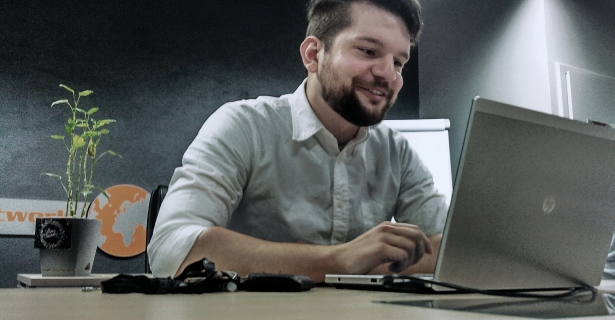Greetings from Belgrade!
It is a busy summer at the Centre for Applied Nonviolent Action and Strategies. In my brief time here, it has been a pleasure to learn from my co-workers and fellow interns about strategic nonviolence and its application throughout the world. My work at CANVAS as a research intern revolves around an in-depth analysis of democratic movements in the Horn of Africa, specifically Eritrea and Somalia. On a day-to-day basis, I monitor social media coverage of protest action and nonviolence, produce weekly reports on internal conflict and international conflict for CANVAS subscribers, and work on advertising CANVAS’ educational programs in the United States. Whether I’m fusing reports based on media coverage, academic sources, and government documents or planning monthly advertising campaigns, it’s easy to see how these skills build experience for a future working at international NGOs.
To offer a window into the CANVAS experience, I’ll describe some of my work researching the Eritrean political situation. After the release of a major United Nations report on the human rights situation in Eritrea, the country became of a new target of interest for the international community and media. Eritrea diaspora pundits and Africa-focused journalists from pro-government and anti-government camps debated the credibility of the scathing United Nations report that accuses the Afwerki regime of crimes against humanity, such as enslavement, a “shoot-to-kill” order against Eritrean refugees, and government-sponsored torture of detainees. The evidence for these claims comes from the testimony Eritrean refugees, who flee the country at an alarming rate of 5,000 people per month. The Eritrean government is critiqued as one of the most isolated and militarized authoritarian governments in the world; many journalist gave it the moniker, “North Korea on the Red Sea.” As a student of Middle Eastern politics with an interest in the oft-ignored field of African politics, it has been especially interesting for me to study the Horn of Africa, where these two worlds collide.
My research tackles tough questions about the future of Eritrea from an outsider’s perspective. How did Eritrea turn from a promising new democratic state into a militarized dictatorship? Who are the political actors supporting and opposing the Afwerki regime? What is the role of the international community in exacerbating or resolving conflict? One of the key principles of CANVAS is that successful movements for human rights and democracy are most likely to stem from internal activism, rather than external intervention. Only Eritreans can guide the future of their country and decide whether international support is welcome or not. The organization hopes that opposition forces choose nonviolent resistance to break the cycles of violence that happen so often in developing countries with authoritarian governments. In the meantime, critical research from international organizations can show that outsiders are interested in the struggle of the Eritrean people for freedom and justice. I’m just at the beginning of my summer working at CANVAS, and I look forward to the new challenges that the next months will bring.
-Shawn

